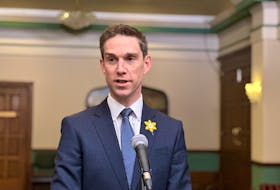The provincial government still has plenty to figure out about regional government before implementing some kind of system in 2019.
A “What We Heard” document, released on Wednesday, shows some of the ideas the government is considering, but issues like taxation remain unclear for the more than 6,000 participants in the government’s consultation on the issue.
On taxation, the government says no clear consensus emerged on what would be the best way to generate revenue for regional governments. Respondents were split on whether or not property taxes were the way to go, while some suggested funding for regional governance be provided by the provincial government.
Other suggestions like income-based taxation, a poll tax and consumption tax were suggested by respondents, while still others want to see no new taxes at all.
The document outlines that most people think if regional government becomes a reality in 2019, communities should not be able to opt out of the model. According to the documents, respondents said that all communities need to be involved in cost-sharing measures in order for regional government to work.
The upsides of regional governance, as discussed by those who gave input, are cost-sharing between municipalities leading to increased access to higher-quality services, increased participation in regional democracy and a stronger regional voice.
On the other hand, some residents were wary of the regional governance model, concerned about increased taxes needed to pay for what some argue is a fourth level of government.
Residents are also concerned that smaller communities would lose their voices, as larger municipalities would have a larger voice in a regional governance arrangement.
Municipalities NL has been calling for regional governance for years. A recently released demographic study undertaken by MNL and Memorial University’s Harris Centre shows the next 20 years will see major declines in population in many rural areas of the province.
The changing demographics have been the driving force toward exploring regional governance as the best option for the future of small, rural communities in the province.
Municipal Affairs Minister Eddie Joyce says the Liberals have set out their plans for the introduction of the model by 2019.
A firm announcement on what regional governance will look like in the province remains to be seen.
david.maher@thetelegram.com
Twitter: DavidMaherNL








